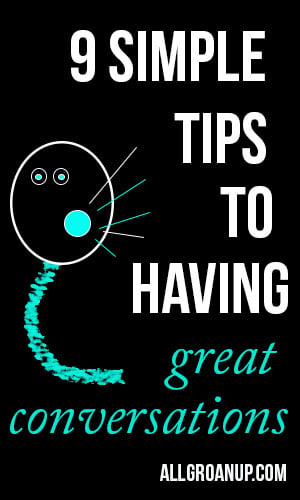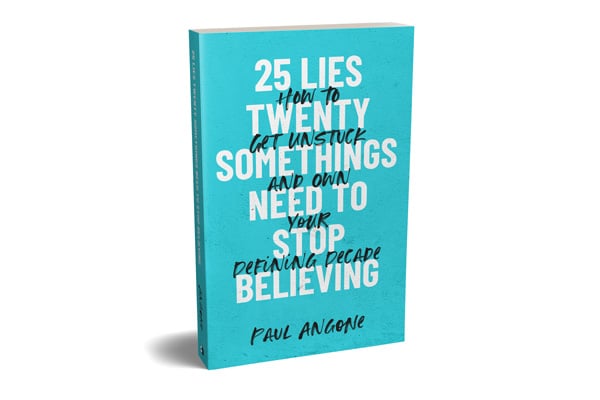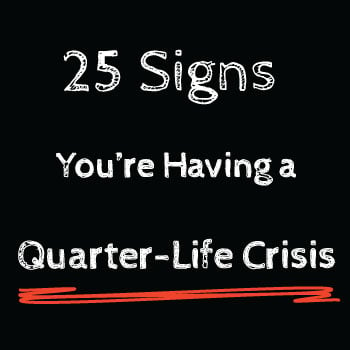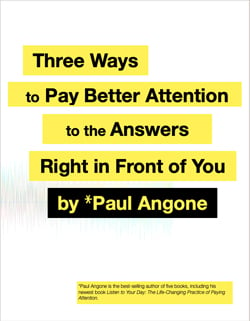Every aspect of success in your life will hinge on conversations.
At the core of every connection is a conversation.
And yet, many of us don’t do conversations very well.
Conversations are an art form that we all too often hurriedly slap some paint on, make a mess of, and then leave for the other person to clean it up.
Yet, failing to have effective conversations could be hurting your relationships, career opportunities, and growth, especially if you’re a Millennial who older generations are stereotyping as incapable of having face-to-face conversations.
I am passionate about effective communication – studied it in college and my whole professional life as a speaker, author, and consultant revolves around being able to have really good, effective conversations.
To be a good friend, great spouse, effective leader or follower, business owner, even a social media specialist, you have to do conversations really well.
And luckily, there are some really simple tips that you can implement today to start becoming a master at conversation:

1. Be excited about who is in front of you
I have a good friend who I consider a master conversationalist. He’s someone you can’t wait to speak to and be around. And if I had to boil down his secret conversational sauce to just one thing, I would say he’s just really good at being excited about the person in front of him.
It’s not a feigned or fabricated excited either. No, he’s just genuinely interested, energetic and engaged, and you feel like you’re important to him.
That’s huge. If the person in front of you feels like you actually care, then you’ve accomplished 95% of having a good conversation. And one of the easiest ways to make someone feel important is through the next tip:
2. Ask more thoughtful questions
I’ve been making it a practice, especially when I meet someone new, to open up the conversation by asking them questions and genuinely listening to their story.
Take the reigns of the conversation not by talking about yourself, but by asking about them about themselves. Asking questions, and then being intentional about your body language as you listen, is how you convey that you actually care.
In conversations, the person who asks the most questions, wins. (want to tweet that?)
3. Don’t have all the answers.
You’re not asking questions so that you can reply with all the answers either. No, sometimes continually forcing your answers in there can shut down a conversation faster than anything.
I think most of us offer too many answers or solutions to “help” the other person. We quickly jump to answers not because we’re really interested in helping them, but because it makes us feel smart and secure to impart our “incredible” knowledge.
Obviously, if you have a problem that needs to be solved at work and you’re trying to figure it out, you need to throw out some solutions. But when talking with friends, be mindful of moments where a humble answer is needed, or more likely, where a humble listener is much more important.
4. Share your struggle
We connect over shared struggle. When you vulnerably and authentically share what you’re struggling with, you allow the person with you to be open and honest as well. You invite a safe space for real conversation.
Be secure enough in who you are to share your insecurities. (why not tweet that?)
5. Be present
It’s insane how distant we can be from someone we’re sitting right in front of. (click to tweet that)
We’re living in the age of distraction and like an over-eager puppy, too many of us are following all the “squirrels” in the room.
When you enter into a conversation, start forcing yourself to give it your full attention. And one of the easiest ways to do that is:
6. Turn your phone off. Or at least turn it over
Nothing shuts down a conversation and clearly lets the person across from you know that they’re not that important than continually checking your phone. Especially as the other person is talking to you.
I think most of us don’t even realize how many times we check our phone while having conversations. We are addicted to them and checking our phone has become our nervous tick.
Even if you’re not picking up your phone, but you’re merely glancing at the screen at the different text messages, tweets, and notifications that are coming in, you are 100% showing the person in front of you how important you think they are.
Every time a phone becomes more important than a person, it’s becoming a problem.
Every time your eyes leave the person and find your phone, you pretty much could be standing up while the other person is talking and leaving the room. That actually would be better because then at least the other person knows to stop talking, instead of trying to finish their story to the distracted person in front of them who it appears doesn’t really care.
If you really do need to be diligently watching your text messages because your boss or spouse needs to get a hold of you, then tell the person in front of you beforehand that you’ll need to check your phone if a text comes in.
7. Be mindful of your body language
There are super simple things you can do with your body to show you care, or that you don’t.
Lean in, smile, turn your shoulders towards the person you’re talking to and look the person in front of you in their eyes. You will look completely engaged.
If you struggle with being present in conversations, even just doing this with your body, can cue yourself to listen and be engaged.
On the other hand, if you lean back, frown more than smile, and continually keep looking away, then you will appear not interested.
The more your body is angled away from the person and the further you lean away from them, the more it looks like you want to leave.
8. Don’t be a Reality Checker
Don’t be so quick to jump in with a reality check.
I talk about this more in my first book 101 Secrets For Your Twenties, but if you have someone sharing their dream with you, don’t play devils advocate. Don’t interrupt and say, “But, have you thought about this…”
Let them dream. Let them be excited about their dream. Be excited about their dream with them. And if they ask you for feedback or insight, then give it to them.
9. Don’t be a One-Upper or a Me-Monster
If you’re wondering if you have any One-Upper or Me-Monster tendencies, watch this hilarious bit from one of my favorite all-time comedians Brian Regan.
Simply put, don’t try to shove your “importance” down people’s throat to make yourself feel significant.
Be secure enough in who you are not to have to display your significance like a peacock trying to attract attention.
The worst way to have a good conversation is to keep forcing your importance into it. (want to tweet that?)
I’d love to hear from you within the comments on this article:
Out of the 9 tips, which one do you struggle with the most?







Fun article! I’m probably a 5 out of 10 when it comes to conversations. I get too distracted, not just by my phone, but by my thoughts while in conversations. Thanks for the interesting, helpful tips!
Thanks Tracy! Yeah it’s tough not to get lost in thoughts, or lost thinking through what you’re going to say next. Listening is a tough, underrated skill.
Love it! GREAT advice for GREAT DATES! Sharing this post with the Future Marriage University (FMU) community at https://www.facebook.com/FMUniversity.
Thanks MJ!
Love #8
Thanks Nisha!
I struggle with number 5 my mind naturally wanders or I’m thinking in depth about something that was said that I followbthe thought down a rabbit hole and tune out a bit. I’m working on listening better. But I have been told I ask a lot of questions. Is that a bad thing?
What are some thoughtful questions you’d suggest? I would like to try this but I often come up empty when I brainstorm.
Thanks Joanna for the thoughtful question! Look, you’re already doing it. 🙂
I think the most thoughtful questions you can as, are follow up questions when you see the person you’re talking to get excited about something. They speak a little faster, smile, lean in, eyes open wider, etc. Say things like, “Oh, that’s interesting…how did you do that? Or what’s the secret for your success. How did you first get into this…”
Questions like that. Focus on the follow up questions because then that will force you to pay attention while they’re talking